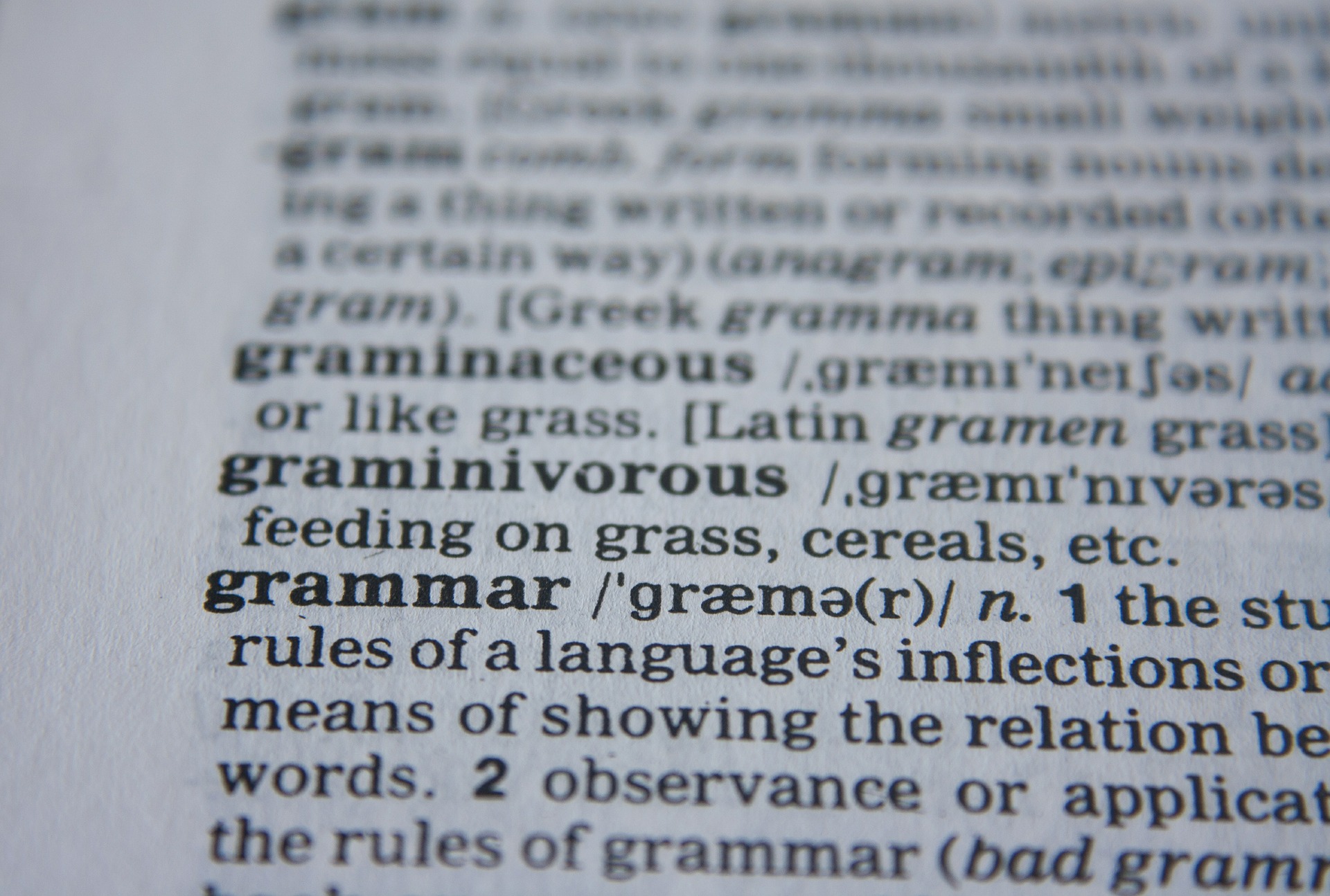Grammar gets a bad rap.
Maybe the tedium of rote lessons in grade school induced grammar aversion. Or maybe it has something to do with the way grammar correction is so often employed to scold or ridicule. Who hasn’t been on both the giving and receiving end of such grammatical slights from time to time?
Nevertheless, grammar is important. It definitely colors perception in professional settings. According to the National Law Review, grammar actually played a role in a federal court case this year. The defendant’s motion was not only denied, but the counsel was chided for submitting a brief “riddled with spelling mistakes and ungrammatical sentences.” A sample of text from the offending brief reads: “PURSUANT TO FEDERAL RULES OF CIVILE PROCEDURES RULES OF CIVIL PROCEDUE 12(b) (2), (3), and (6) FIRST STANADFINANCIAL COMPANY MUST BE DISMISSED.” Is it any wonder the District Court was not impressed?
Grammar neglect
There’s rarely cause to make a federal case out of grammar. Most folks probably prefer to avoid the subject altogether. Consider the emergence of automated writing aids in all the apps you use these days. There has been an awful lot of effort employed to free people from worrying whether the “i” comes before the “e.”
And it’s not just spellcheckers: Grammarly, the company responsible for an AI-powered tool that also scrutinizes sentence structure and word choice in real time, closed a $90 million funding round last year. That’s a mighty big investment in the ability to offload grammatical dexterity.
When we do pause to consciously consider grammar, it’s generally with vexation at someone’s poor usage or anxiety about our own.
But grammar isn’t meant to be avoided or weaponized or feared. It’s meant to reinforce logic, clarify meaning, and help us to communicate with each other. We should think about grammar. It doesn’t confine us. Instead, grammar guides us through the abundant and ever-evolving capabilities of language. That’s a noble journey.
And besides, grammar can be a lot of fun.
Pleasures of grammar
We’re big fans of Mignon Fogarty’s popular Grammar Girl podcast — a decade-deep treasure trove of interesting instruction on all things grammatical. What’s a comma splice? Why is “Worcester” pronounced “Wooster”? Where did daylight saving time come from? How do you punctuate an indirect question? Did you know “gravy” is a ghost word?
Possessing the answers to these questions can make you a better communicator. (And it can make you a more engaging companion at a dinner party!)
Most importantly, the pursuit of good grammar demonstrates discernment — care for how our thoughts are understood by others. It’s a glue that helps us relate to one another.
At my place of work, communication is central to our services, so we’re naturally drawn to explorations of grammar. And while we’re happy to employ digital tools to assist in our work, we also believe professional communication requires human attention. For example, the automated writing aids embedded in the application used to write this article didn’t find any errors in the offending legal brief mentioned above. (Capitalization settings are probably the culprit, but human eyes care not for such excuses.)
Like it or not, grammar is inextricably tied to conveying purpose and intent. As the prolific linguist David Crystal has explained:
“Grammar is the structural foundation of our ability to express ourselves. The more we are aware of how it works, the more we can monitor the meaning and effectiveness of the way we and others use language. It can help foster precision, detect ambiguity, and exploit the richness of expression available in English. And it can help everyone — not only teachers of English but teachers of anything, for all teaching is ultimately a matter of getting to grips with meaning.”


